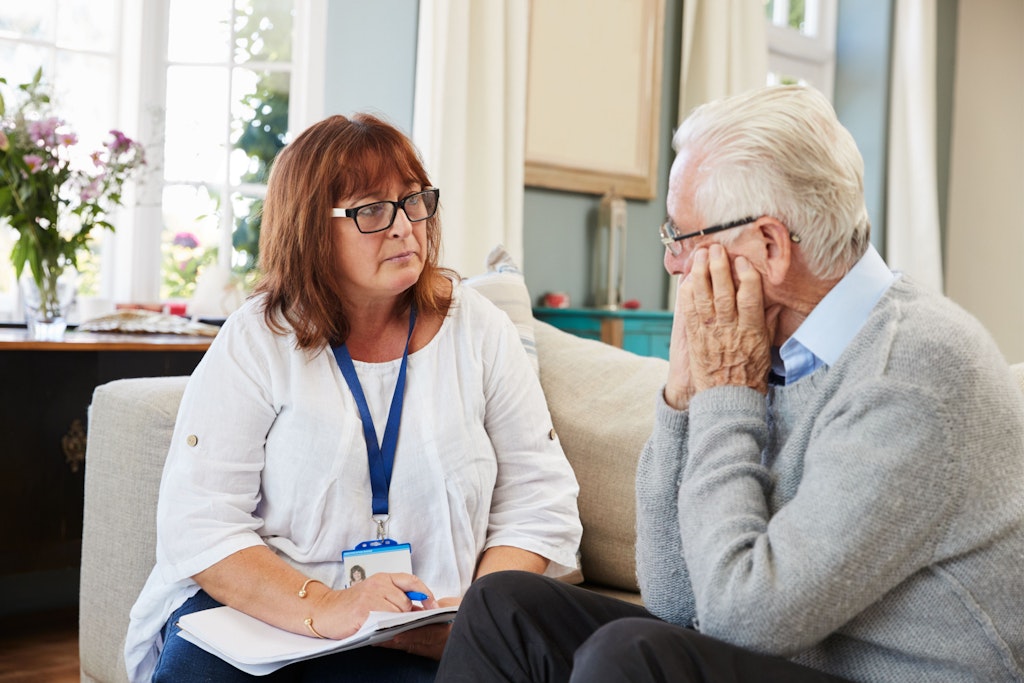Mental health training: an essential skill
Last updated on 15 August 2023

Mental health in aged care is not a regular part of aged care training. Staff are taught skills in a range of areas including meeting an older person’s personal care needs, dementia support, infection prevention and how to follow safe work practices to name a few.
Tools and strategies for how to support resident’s mental health needs or dealing with tense situations are generally not part of the skill set workers enter the industry with. Here’s why they should be.
Training that is uniquely catered to care recipients experiencing psychosis, depression and anxiety can equip workers with the ability to de-escalate crises among residents.
Not just a work skill
Dr Claire Kelly, Director of International Programs for Mental Health First Aid Australia (MHFAA), said that the better equipped people are to do their jobs, the more likely they are to stay and hone their skills in the role.
“Having mental health first aid skills isn’t just a work skill, it’s a life skill, so, being able to go home and use those same skills with family, with friends, other people in your community… All of that leads to feeling more in control and feeling able to help the people around them,” said Dr Kelly.
“Over the last 20 years, we’ve talked a lot about early intervention and it’s often assumed that early intervention is for young people. If someone is 90 years old and having their first episode of mental illness or perhaps their first episode in a long time, I still want them to get help as soon as possible.”
Crises such as suicidal thoughts and behaviours, panic attacks, delirium and problematic confusion can often be mitigated through early detection, treatment or referral and ongoing supervision.
“While in the community, we do have an overall improved level of mental health literacy, it’s often very limited to perhaps adults of a working age, or young people, where we’ve got a sense of what we’re looking for,” Dr Kelly added.
“There is, unfortunately, in the community at large, perhaps a view that getting older is just a depressing part of life or another nihilistic outlook like that. It’s just not true. In fact, while mental health problems certainly do occur in older people, the rates are lower than the rest of the population overall. At the same time, are people less likely to ask ‘what can we do to improve this person’s quality of life?’,” according to Dr Kelly.
Recognise signs and symptoms
One example of a course to help staff gain knowledge and skills is through an Older Person’s Mental Health First Aid (MHFA) course offered online or at different locations across the country. The 12-hour face-to-face course is specifically for staff in the aged care sector, which is usually delivered as either a 2-day training package or as 4 separate modules.
Robyn Miller is instructor of the Older Persons Mental Health First Aid training course MHFAA and has recently delivered this training to aged care staff in both Queensland and Victoria.
Early signs of mental health issues
Some of the signs to look out for in older adults that could signify mental health issues include:
- Frequent mood changes
- Trouble concentrating and remembering things
- Withdrawing from social interactions
- Change in appetite
- Change in personal care and hygiene
Ms Miller explained that mental health training courses enable staff to recognise the common signs and symptoms of mental health problems in older people.
“They would learn about the different ‘risk’ factors for the onset of mental illness, how to respond and provide support to the older person, and where to go to access professional help if it is needed,” she said.
All staff working with older clients should pay particular notice to any changes in behaviour, emotions, or physical problems which may occur in the older person. They should also “have an understanding about the many and complex issues older people are faced with, particularly around grief and loss,” she added.
“Connect them with their General Practitioner (GP) or a clinical person to access any treatments that may be available for them, make sure they have a good ‘support’ network, involve any family members or significant carers,” said Ms Miller.
“Try to engage them in community activities that they may have found enjoyable in the past or work with them to discover new interests.”